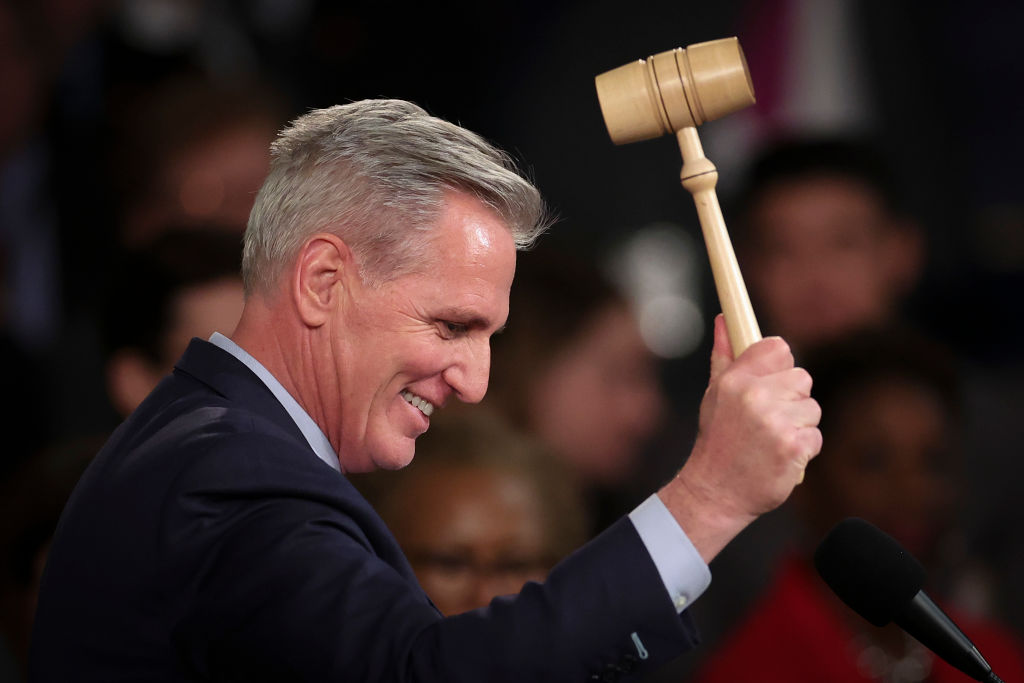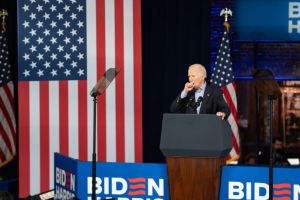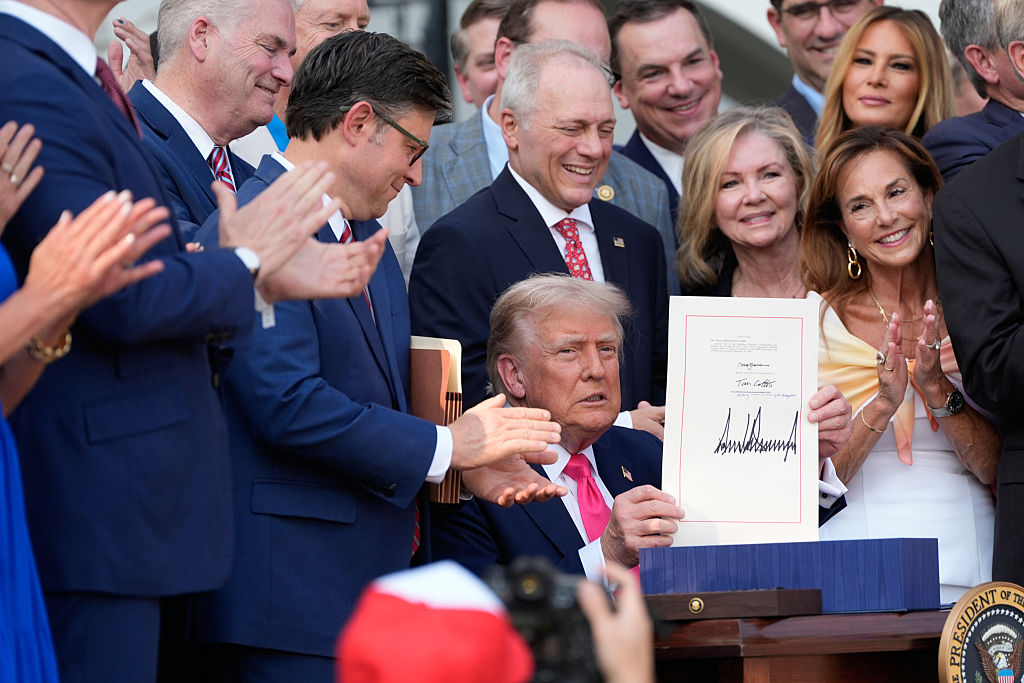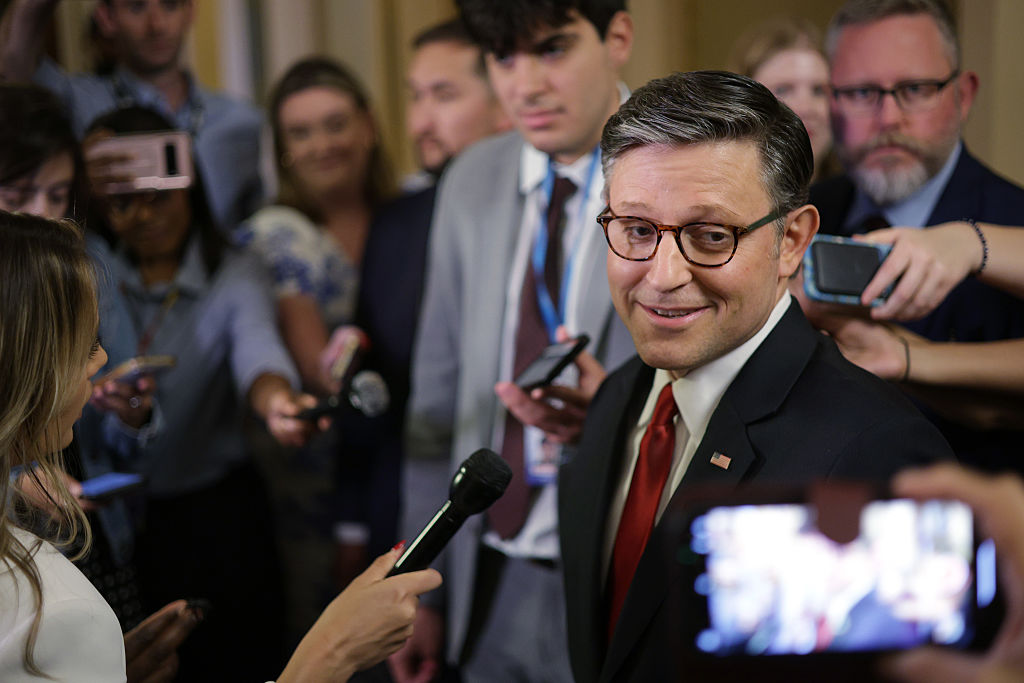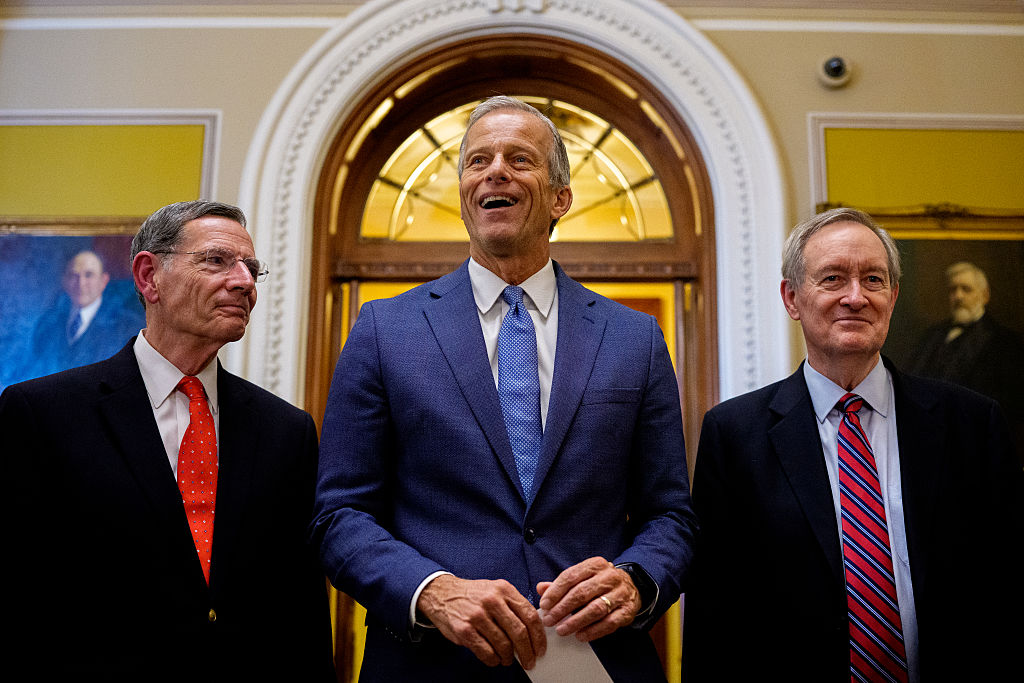And then there was Kevin.
In the wake of a forecasted red wave that never materialized, now-Speaker Kevin McCarthy plotted with friends and foes alike to secure the magical 218 votes necessary to take the helm of a rowdy, openly feuding House Republican caucus.
After fifteen rounds of voting, Republicans eventually united behind him. Key players in the machinations spoke with The Spectator about the breakdown in the negotiations that had started in earnest after November’s elections.
“Whirlwind.” “Shitshow.” “Weird.” At times, last week’s history-making votes felt more like a slog through purgatory than a victory lap over the long-awaited firing of Nancy Pelosi. The work was so all-consuming that some staffers even say they had C-SPAN-infused dreams and nightmares when they were able to catch a few hours’ worth of sleep.
The drama also collided with the onset of Dry January, making for some tough choices. One congressman debated with me about whether he earned a mulligan after a particularly long day of voting. On the first day, when it became clear that the impasse wouldn’t be solved, Congress adjourned — to the swearing-in parties that had been planned for weeks.
For much of the negotiations, the elephant in the room was the lack of elephants in the room. House Republicans had a smaller than expected conference, giving each individual member leverage that they would have lacked had the GOP picked up the historic majority that many predicted.
One source close to the negotiations among McCarthy’s opponents said that the stage was actually set months ago: “This started with the rules package that [the House Freedom Caucus] introduced in the summer.” But it was only after Republicans gained the same slim five-seat majority that Democrats had for two years that the talks really heat up.
“Leadership didn’t really want to engage until after the elections,” one closely involved staffer told me. “They didn’t think they would need to worry about [the House Freedom Caucus]; they thought they were going to get a forty-seat majority or whatever. Talks began in earnest after that, but it’s unclear if they realized how much trouble McCarthy was in until right before the vote.”
Going into the week’s votes, a small handful of Republican members made it clear that they were opposed to McCarthy — but the initial rounds had up to twenty congressmen voting against the eventual speaker. One of the players in the anti-McCarthy camp said that this came down to individual members’ preferences. “Some people were genuinely undecided until right before; others preferred to keep it close to the vest for various reasons. But those who came out first had to take a lot of the heat and anger before everyone else did.”
While McCarthy’s opponents insist that they had several alternatives to him — which some staffers are surprised never leaked — one thing they never took seriously was the idea of a West Wing-style unity speaker backed by members of both parties.
As the week dragged on, and bets on political betting sites like PredictIt swelled, frustration mounted. Republicans took to media outlets on the left, right and alleged center to push their talking points. In fact, CNN played center stage to the drama at times. Representative Byron Donalds told Jake Tapper that McCarthy didn’t have the necessary votes at one point; Donalds then briefly became a McCarthy alternative before ultimately voting to push McCarthy over the top.
A veteran GOP communications director on the Hill considered the uptick in Republicans on CNN notable — and said it could portend a broader trend with freshmen who like watching themselves on TV. A counterpart of his disagreed: she thinks CNN and MSNBC will drop their newfound Republican friends because their liberal audiences don’t want to hear from them — unless they are engaged in a GOP civil war like they were last week.
While the specifics of the deal-making that took place may never be fully public, several stakeholders told me that the horse-trading will make for an even more fragile majority than many expected. “You can only give so much to the Freedom Caucus without taking from the normie Republicans,” one told me. Some of this has already played out in the immediate aftermath, with the high-stakes battle for the House’s Homeland Security chairmanship.
Representative Dan Crenshaw had been campaigning to take over the prestigious committee for nearly a year, only to see the spot awarded to Freedom Caucus member Mark Green at the last minute. One source who was enmeshed with the Republicans’ Steering Committee negotiations pointed to this as the first big concession McCarthy made.
“There are lots of unwritten, back-door deals that McCarthy agreed to just to secure his votes for speaker,” she said. “We may never know exactly what was promised. But the deals will continue to reveal themselves publicly.”
One source reminded me that the newfound ability for any member to invoke the motion to vacate could be used by any Republican, not just McCarthy’s foes of the past week. Most on Capitol Hill think that someone will invoke it at least once during this Congress, a possibility that Representative James Comer acknowledged as well.
The intra-GOP infighting didn’t happen in a vacuum, of course. House Democrats, fresh off of jettisoning their aging leadership, presented a united front behind Hakeem Jeffries, who notched a unanimous 212 votes from the caucus in all but one round (when Representative David Trone briefly went for surgery). One Democratic comms director “laughed at how big of a shitshow this is” to one of his Republican counterparts.
The frustration boiled over publicly, with Representative Mike Rogers nearly coming to blows with Representative Matt Gaetz, and with Representative Don Bacon calling McCarthy’s opponents the “Taliban 19.” “Sometimes it felt like they were trying to hold the rest of us hostage,” a comms director for a pro-McCarthy member told me. “While this is what a republic is all about, it felt like some members refused to negotiate in good faith and were out there for clicks and attention from the media.”
Finally, however, both sides had seen enough. While some pro-McCarthy voices told me that “McCarthy negotiated way too much,” his opponents welcomed his team’s willingness to “engage in earnest, good faith negotiations,” which, one noted, came after several failed attempts to secure the required votes. The more optimistic view among McCarthy’s detractors is that this fight was worthwhile, because it can lead to a House of Representatives that is “more open, more democratic [and] more accountable.”
Many staffers from both sides of the McCarthy divide did agree that much of this should have taken place months ago. But some among the anti-McCarthy crowd delighted in the public blood-letting, arguing that it was good for the party — or their bosses.
“My biggest takeaway is that this should have all been negotiated behind closed doors in December,” a staffer for one of McCarthy’s opponents told me. The sentiment from McCarthy’s backers is more unanimous. “Ultimately, many of the agreements reached will help forward conservative principles, but these discussions should have taken place months ago,” one said.
A Hill staffer joining her second office, that of a pro-McCarthy freshman, echoed the complaints of many to me when complaining about the lack of a united front the GOP showed for much of the week, and that there was never going to be a credible alternative to McCarthy. “We sit here and complain about ‘Dems in disarray’ and yet here we are,” she said. “If there was another viable candidate, I’d say, maybe consider it. But what plan did they have? Nothing.”
As McCarthy’s foes cycled through voting for Representatives Jim Jordan, Kevin Hern and others, those same members nominated McCarthy for speaker. Jordan in particular made it clear that he has no desire to be speaker, but that didn’t stop McCarthy’s opponents from giving him dozens of votes during several rounds anyway.
The week’s chaos not only affected the basic functioning of the House, but also constituent services. All new Hill staff were frozen out of their government email addresses until the impasse was breached. A comms director for a freshman member resorted to sending direct messages on Twitter to journalists to make sure that his boss’s voice was included in their coverage, because he was unable to email them. Even staffers who transferred from one office to another had their government email accounts frozen. Had the deadlock continued, the salaries of both members of Congress and their staff would have been thrown into limbo.
Representative Mike Gallagher pointed out that he and colleagues had lost their security clearances because they were technically unemployed. Gallagher learned this when he attempted to enter a sensitive compartmented information facility for a meeting when he was “informed by House security that technically I don’t have a clearance.” This is because members of Congress are not sworn in until after the speaker is elected.
The entire Congress were sworn in as one on January 7 after midnight. This foiled the plans of many families who flew in from across the country to celebrate their spouses, parents or siblings, because they had to return to their day jobs or classes across the country. One member’s family told me they flew in, toured some museums, but were unable to extend their stay long enough to properly celebrate after the swearing-ins were delayed repeatedly.
Another disappointed group is the DC lobbyist crew. One lobbyist who made the rounds at these parties told me it wasn’t a surprise that Congress dispersed around DC, because “freshman members had receptions for donors, lobbyists, family and friends (in that order of importance) planned for that evening.”
Gaetz, who swore off fundraising from corporate money almost two years ago, was able to keep his campaign coffers full by sending out fundraising missive after fundraising missive over email and text about his work “stopping McCarthy.” Ultimately, his “present” vote helped pave the way for McCarthy to claim the speaker’s gavel.
Meanwhile, the Republican Party’s larger donor fundraising was cryogenically frozen. A party fundraiser told me that until the speaker’s race was decided, all big donors wanted to do was talk about how the speaker’s race was unsettled. Meanwhile, small-dollar donors were flocking to the Republicans who were fighting the “establishment” harder than they fight against Democrats.
The frustration that McCarthy’s intra-party foes would rather fight Republicans than Democrats is echoed by both their own words and the thoughts of those on the ground. McCarthy said that Gaetz claimed “I don’t care if we got a plurality, and we elect Hakeem Jeffries,” because then he could fight against the Democrats — even though Republicans have control of the House.
Once McCarthy clinched the gavel, one Republican member noted to me that the motives of many of McCarthy’s foes were transparently selfish. In addition to the fundraising hauls they’ll try to bring in, the member pointed to several who are likely to mount statewide bids next year, using their anti-McCarthy stances in GOP primaries. Montana Representative Matt Rosendale is likely to try to avenge his loss to Senator Jon Tester. Representative Victoria Spartz, who voted “present” for multiple rounds, may run for the Senate seat in Indiana being vacated by Mike Braun, who recently broke with Mitch McConnell and voted for Rick Scott to lead the Senate Republicans, likely motivated by similar primary considerations in his bid for governor of Indiana.
As the country marveled at the GOP’s infighting, I asked a former member of the House GOP caucus if he missed his time there: “I miss being with friends, but not the bullshit.”



